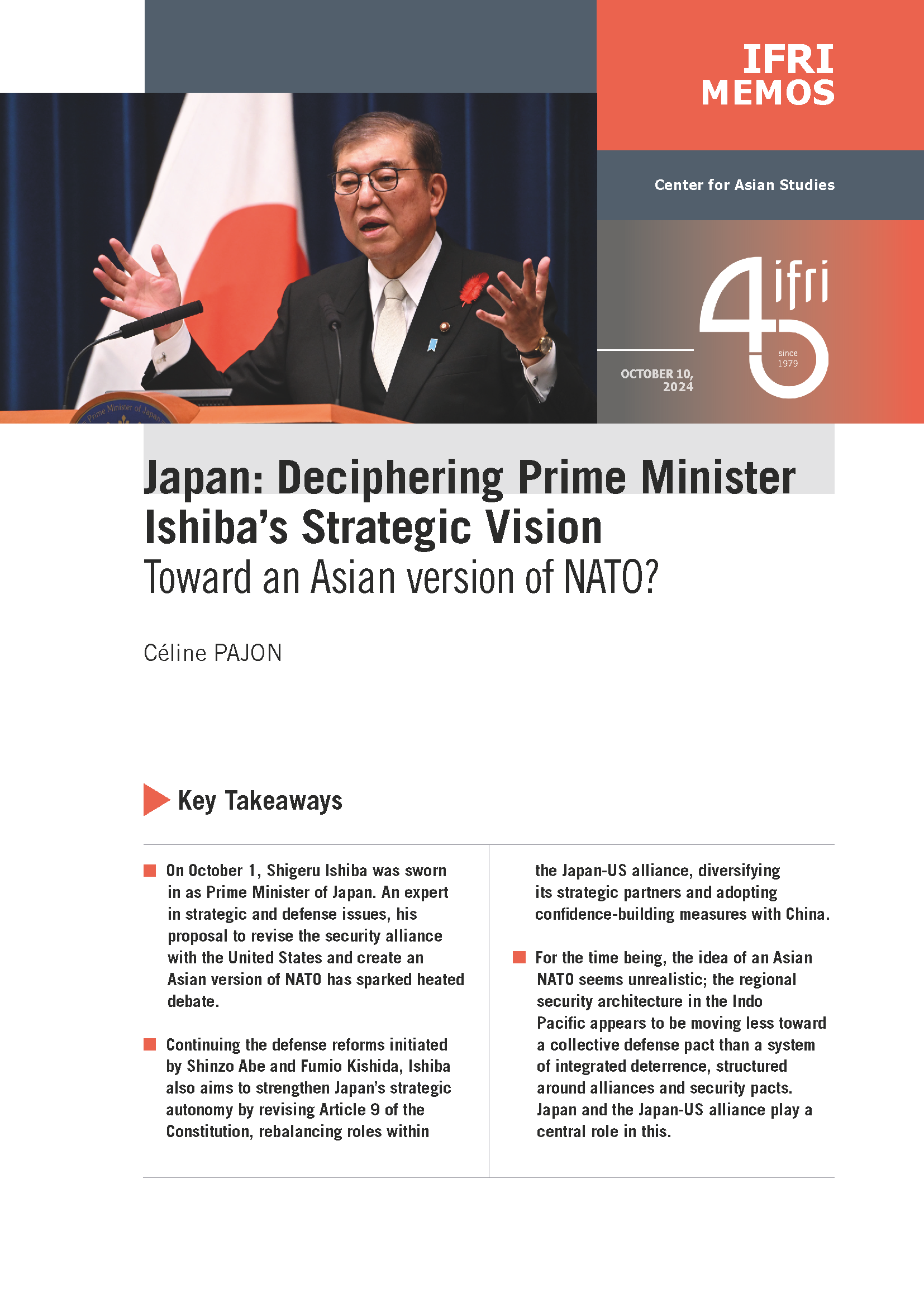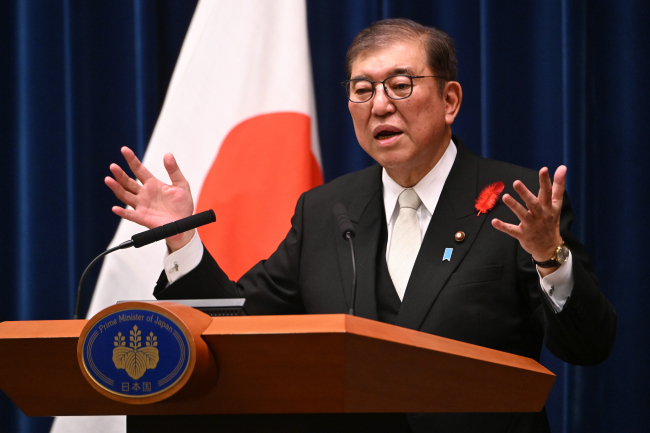The French Presidency of the EU and Current European Issues: A German Perspective

Report written by Christian Schülke, Junior Research Fellow and Pierre Bouygues, Intern, Ifri Brussels.
In his speech, Peter Weilemann, director of the Konrad Adenauer Foundation’s Brussels office, analysed the French presidency of the EU. He presented his views and observations about the French presidency and the ways it is seen in Germany. In his introductory assessment, he declared that usually, an EU presidency is just about preparing conferences, organizing cultural events and managing the day-to-day business. The host country can try to influence the course of European policies, but only to a limited extent. In general, the benefits for the host country consist in an opportunity to support European thinking at the national level and to focus the state administration on EU issues. But the current EU presidency has to tackle an extraordinary number of problems that have consequences for all member states. For the time being, and especially after the October summit, the balance sheet of the French presidency is rather positive, according to Mr. Weilemann.
A full agenda for the French EU presidency France had been developing the priorities of its EU presidency since January 2008. So early on, it has been clear to everybody that the French EU presidency would be quite ambitious, trying to push forward several European legislation projects at the same time, with the aim to change the course of Europe and to “bring France back into Europe”. According to Mr. Weilemann, Nicolas Sarkozy has managed a very successful start of the French presidency. His statement in the European Parliament in July, opening the French EU presidency, was warmly welcomed by the MEPs. Shortly afterwards, the French president has achieved a major success with the launching of the “Union for the Mediterranean”. The progress concerning the European immigration pact is also an important French success. What is more, Nicolas Sarkozy has so far avoided the collapse of the climate and energy package, resisting to pressure from a group of member states. Other issues like the European Security and Defence Policy and the Common Agricultural Policy have got less attention recently, but the French presidency is working on these questions.
While the original agenda had already been well packed, three major unforeseen crises have emerged in the course of the French presidency (or just before its beginning): the Irish no vote in the Lisbon referendum, the war in Georgia and the global financial crisis. According to Mr. Weilemann, the French presidency has been able to cope with these problems, albeit the first reaction to the Irish “no” was a rather inconvenient attempt to force the Irish towards a new referendum. But then, Nicolas Sarkozy decided to listen to the Irish, as he went to Ireland. The European Parliament now wants to speed up the ratification process, but according to the speaker, the risk of a second failure in a short time would rather impose to slow down the ratification process. Concerning the Russian military intervention in Georgia, Mr. Weilemann stressed that Nicolas Sarkozy has tackled the crisis in a convincing manner. The six-point-agreement effectively helped to avoid a worsening of the crisis. The European action in the crisis gave fresh blood to the Common Foreign and Security Policy and was crucial for the reputation of the EU as an international actor. Even if the conflict in the Caucasus is still not solved and will not be in the near future, the chances to “freeze” it again are saved. One has to remember that the European Union was quite divided during the crisis: some member states, especially from Central and Eastern Europe, were in favour of a strategy of containment towards Russia, while some others such as France and Germany take as starting point the idea of interdependence with Russia.Currently, Nicolas Sarkozy has to manage a third unforeseen crisis: the financial crisis. Here, the balance sheet is more mixed according to Mr. Weilemann. One has to acknowledge that the recent European Council succeeded in agreeing strategic lines for tackling the financial crisis. This was a very good result and showed that the EU can act in a crisis situation, even if there had been some “misunderstandings” between Nicolas Sarkozy and Angela Merkel in the run-up of the summit. But according to the speaker, the renewed French proposition of a European “gouvernement économique” was presented in an unsuitable way by Mr. Sarkozy, who insisted too much on his own ideas, without consulting with other Europeans. In result, the reactions to the French propositions were quite negative, especially those coming from Germany and the Czech Republic as the incoming presidency. In the end, the ideas put forward by the French president have caused unnecessary irritations in the Franco-German relations, according to Mr. Weilemann.
Consequences for the Franco-German couple in his final remarks, Mr. Weilemann tried to draw some more general conclusions about the state of the Franco-German relations. According to him, the elaborated system of coordination between France and Germany is not always sufficient to overcome the two countries’ essentially different approaches to some issues. This can be illustrated by three recent examples that show clearly that the current problems are certainly not only a matter of style, but more deeply rooted:
- Angela Merkel sent emissaries to all European capitals during the preparation of the Lisbon Treaty, whereas Nicolas Sarkozy rather enounced propositions and then expected other countries to follow when dealing with the Irish no.
- While the German Chancellor talks about the importance of the principles of social market economy Mr. Sarkozy speaks “new capitalism” and a revamping of the international financial order, for example in his recent statement at the United Nations. What is more, Germany has developed a kind of Pavlovian reflex against French proposals concerning European economic policy: the first reaction is negative, because German leaders suspect that in the end, Germany will have to pay for French ideas.
- The discussion about the Eurogroup shows once again that Germany aims to involve all countries into European decision-making, whereas France pushes for pioneer groups or directorates consisting of the biggest economies. So Mr. Sarkozy’s idea of upgrading the Eurogroup was not well received in Germany. Even if the idea of “Kerneuropa” was originally developed in Germany by Wolfgang Schäuble and Karl Lamers, this concept is much more popular in France than in Germany: German leaders overwhelmingly support the unity of Europe and want to avoid at all cost a splitting-up of Europe. That is why Germany initially criticized the proposal of the Mediterranean Union.So in the end, one could say that it is quite surprising that France and Germany are still working together. But both countries are well aware that they have a big responsibility: an absence of coordination between the two would be highly detrimental for the EU. Being aware of this they never try to form coalitions against each other, even if the two countries sometimes disagree on particular points. Above all both countries are united in a strong commitment to European integration.
Mr. Weilemann’s presentation was followed by a debate with the audience. The questions were mainly related to the upcoming Czech and Swedish presidencies, probable German and French reactions to the US presidential elections, the role of the European Commission in dealing with the financial crisis and German perceptions of Mr. Sarkozy’s way of doing politics.
Related centers and programs
Discover our other research centers and programsFind out more
Discover all our analyses
China, technical standardization, and the future of globalization
As the global economy sits at a crossroad between connectivity-driven globalization and strategic decoupling, technical standardization provides a valuable measure of where we are headed.
Japan: Deciphering Prime Minister Ishiba’s Strategic Vision. Toward an Asian version of NATO?
On Tuesday, October 1, Shigeru Ishiba was sworn in as Prime Minister of Japan. His proposal to revise the security alliance with the United States and create an Asian version of the North Atlantic Treaty Organization (NATO) attracted attention and sparked lively debate.

Critical Raw Materials, Economic Statecraft and Europe's Dependence on China
As China tightens export controls on critical minerals, it is important to put Beijing's policies in perspective and analyse how Europe can respond.
China’s Mature Node Overcapacity: Unfounded Fears
China is decoupling from, not flooding, the global mature-node semiconductor market. As China increasingly pursues industrial policies encouraging domestic chip production, its own growing chip demand will prevent a direct flood of cheap Chinese chips on foreign shores. However, as Beijing achieves its goal of decreasing the reliance of domestic downstream manufacturers on foreign chips, European and American mature-node semiconductor companies will feel the ripple effects of an increasingly “involuted” Chinese chip ecosystem.











